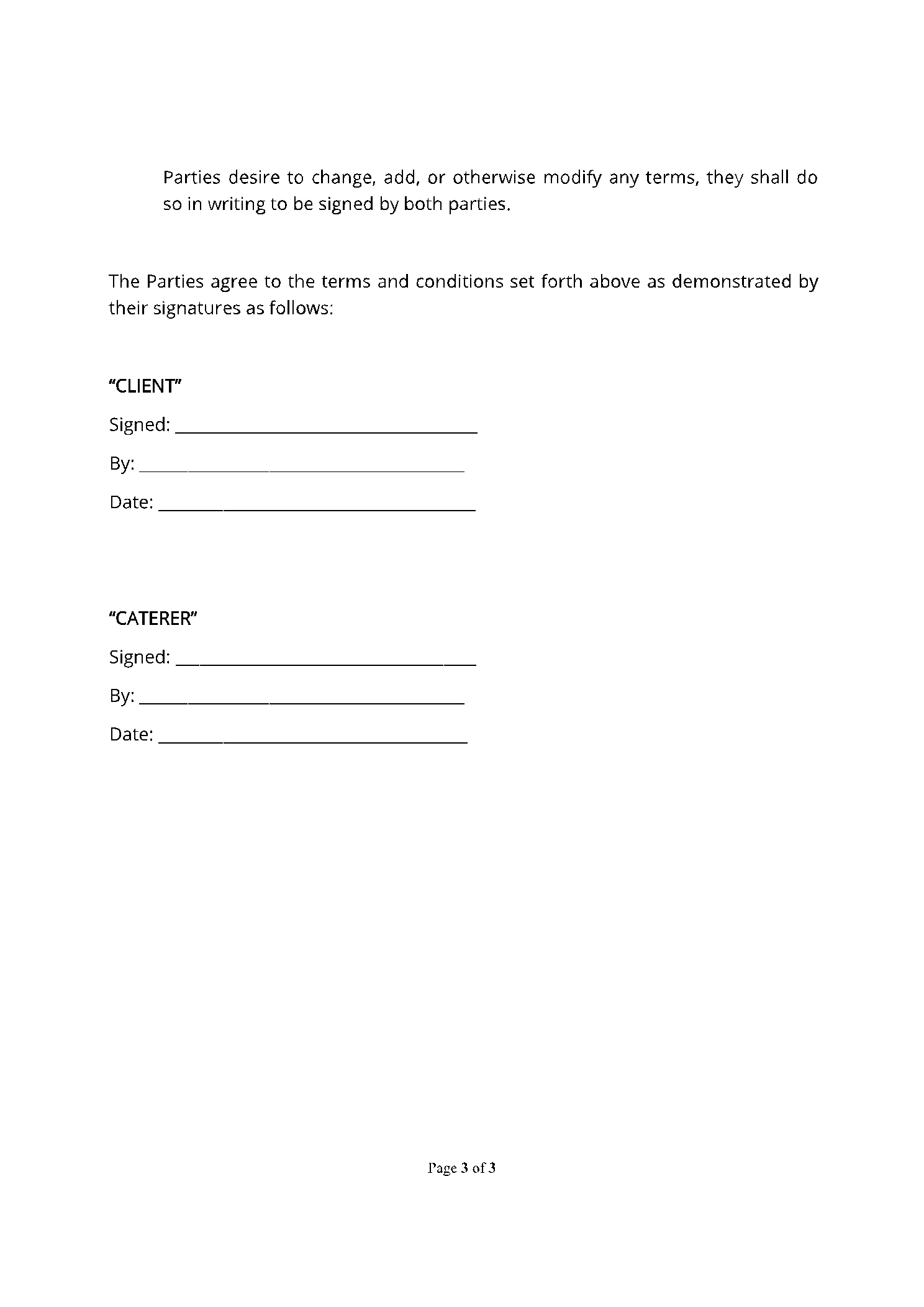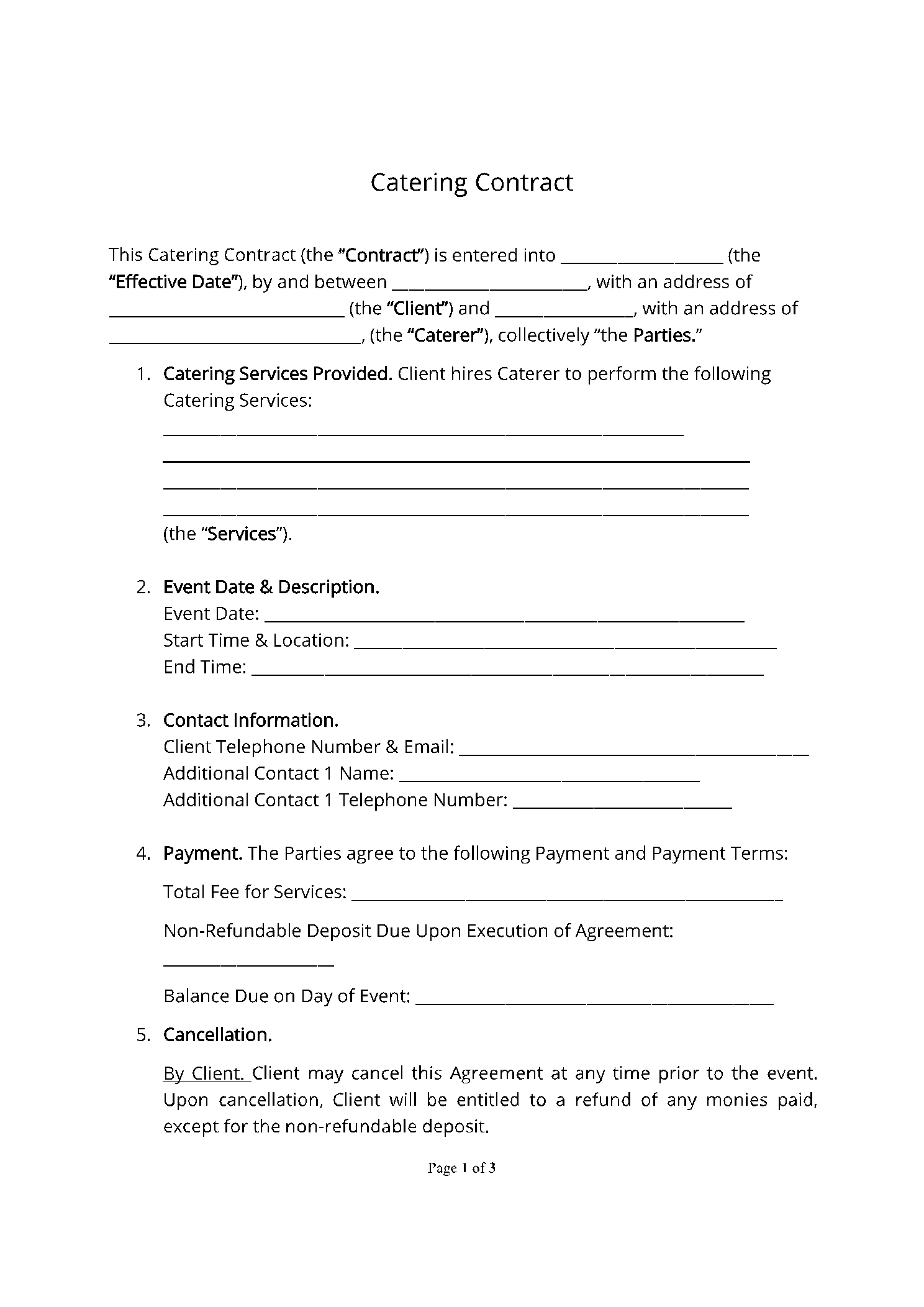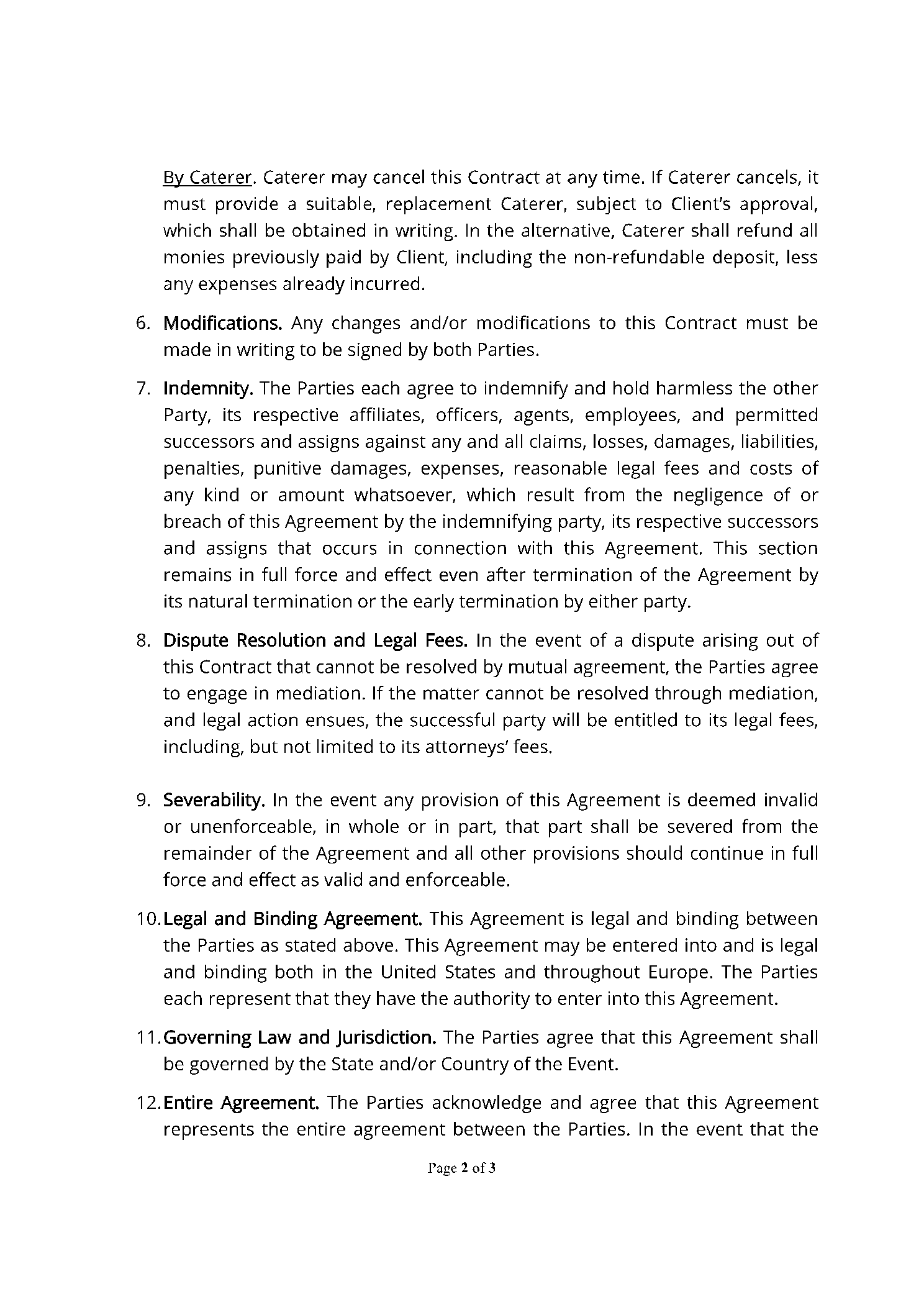Do you want to create a catering contract? Here are downloadable catering contract templates customized and legally created. You can also find out all about what catering contracts are and if you need a catering contract or not.
Read below to find everything important regarding catering contracts:
Part 1: What is a Catering Contract?
A catering contract is a contract between a caterer and a customer which outlines the terms for the caterer to provide catering services, such as supplying and/or serving food for the customer at a specified date, time, and venue.
Catering contracts, if well written, can make sure that the caterers meet their obligations towards providing pre-agreed quantity and quality of food, and the obligation of the customer to pay for the caterers’ services on time.
A catering contract is used to protect the interests of both- the caterer and the customer. Therefore, any clause that has been agreed upon by both these parties can be added in the catering contract.
Part 2: What is included in a Catering Contract?
As mentioned before, the catering contract includes the terms that have been agreed between the caterer and the customer. In order to avoid disputes in the future and to provide resolution to any conflict, the catering contract needs to be written in-depth.
The following are important components that should be present in a catering contract:
Identification of the Customer and Caterer:
The catering contract should clearly define who is the customer and who is the caterer. If the caterer is a catering company, the contract should name the company along with the name and signature of the representative of the company who is signing the contract.
Event:
The catering contract should define the date, time, and venue of the event in which the catering services of the caterer are required. When mentioning the venue, it is important to state the address of the venue as well.
Services:
The caterer can provide multiple services, such as the supply of food, serving the food, staffing, etc. Therefore, the services of the caterer for which they are being hired should be mentioned on the catering contract clearly.
Payment:
Payment details that need to be included are the compensation by the customer to the caterer for the services being provided and any advance deposit for the service. Further, the contract should describe when the customer can be invoiced by the caterer and the timeline for due payment.
Termination:
The catering contract needs to have termination clauses for the customer as well as the caterer, which defines what will happen if the caterer or the customer cancels the service before the event.
Capacity:
It can be stated in the catering contract that the caterer is being hired as an independent contractor and not as an employee for the customer. This can save the customer from paying any benefits that are due to an employee.
There can be additional components if the customer or the caterer finds them necessary to be added in the catering contract.
Part 3: Why is a Catering Contract Important?
Catering contracts are quite important in the food services industry. A catering contract clearly outlines the responsibilities of the customer towards the caterer and vice versa. Therefore, neither party can refuse from fulfilling their obligations once the contract has been signed.
A catering contract clears things for the caterers in terms of the services they have to provide, such as whether serving the food is included or not in the contract.
While this makes sure that the customer gets the services they have paid for, it also ensures that the caterer can charge extra for any services being demanded which are not present in the contract.
It also makes sure that the caterers deliver on the quantity and quality of the food that is promised. Once they have fulfilled their service, a catering contract oversees that the customer pays the caterer within the due time.
The termination clause makes sure that if any party is cancelling the contract, they have to pay the penalty that is mentioned in the contract. This further bolsters trust between the caterer and the customer that the services promised will be provided and paid for.
Part 4: Different Types of Catering Contracts
There are a lot of different types of catering contracts that are used by caterers. Here are the main types of catering contracts that are commonly encountered:
Cost Plus
In a cost plus contract, the caterers prepare an approximate budget of the catering services for the event. In case the actual cost of the service is surpassed by the approximate cost, the customer has to pay the difference. In case the actual cost is less than the approximate one, the savings are forwarded to the customer.
The subsidy in a cost plus contract can vary monthly. Any contractors under such a contract also charge a management fee.
Cost Plus Guarantee
Cost Plus Guarantee is more or less similar to the Cost Plus contract. The major difference is that in a Cost Plus Guarantee contract, the caterer guarantees certain lines within the contract, such as the labour costs.
Fixed Price
In a fixed price catering contract, the caterer gives the customer a fixed pricing for the catering services. All the labour costs in these contracts are borne by the caterer. Therefore, the cost of fixed price contracts can run high because the caterer takes into account any risk that is involved.
Fixed Cost Per Head
In a fixed cost per head, the caterer gives the customer a pricing charge on a per head basis. The total cost of the catering service for the event is calculated by fixed cost per head multiplied by the number of people. The caterers have their own system of counting the people.
Wrapping Up
Now you know all there is to know about catering contracts. You can also download catering contract templates from CocoSign, without having to do any hard work on your end. Go ahead and choose the contract template that you like.


